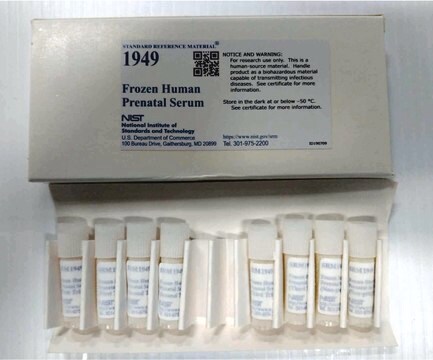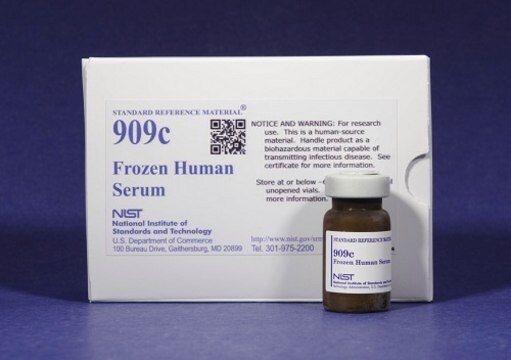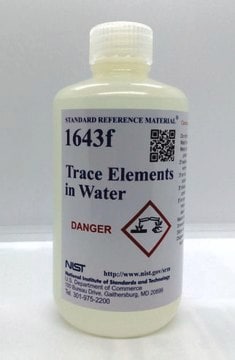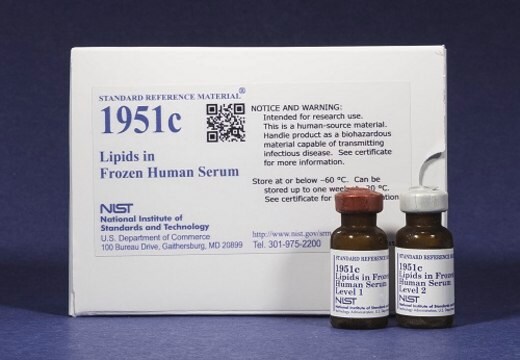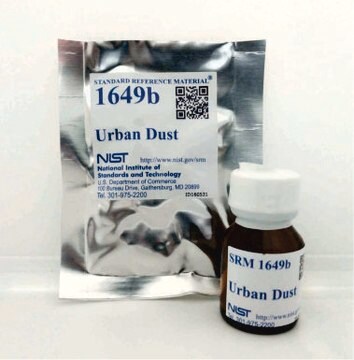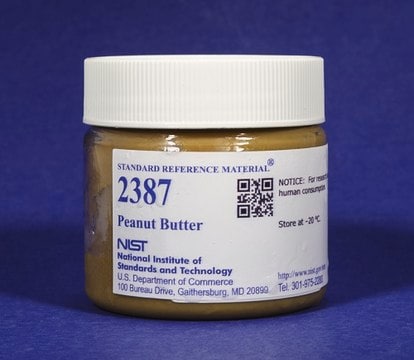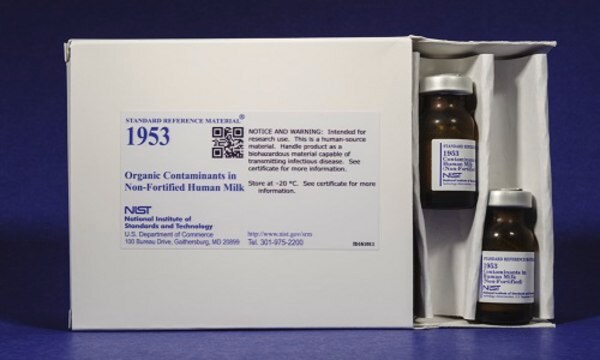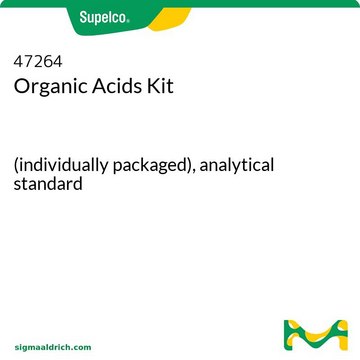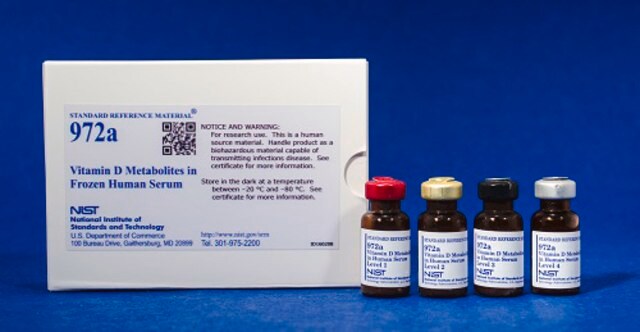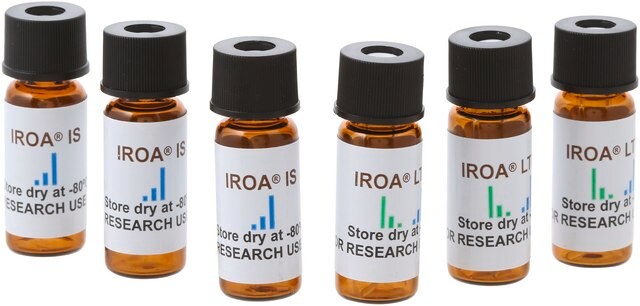NIST1950
Metabolites in human plasma
NIST® SRM® 1950
Synonyme(s) :
Human Plasma Metabolites
About This Item
Produits recommandés
Qualité
certified reference material
Niveau de qualité
Forme
liquid
Conditionnement
pkg of 5 x 1 mL
Fabricant/nom de marque
NIST®
Technique(s)
gas chromatography (GC): suitable
liquid chromatography (LC): suitable
mass spectrometry (MS): suitable
Application(s)
clinical research
Format
matrix material
Description générale
It was developed in a collaboration between the National Institute of Standards and Technology (NIST) and the National Institutes of Health (NIH) National Institute of Diabetes and Digestive and Kidney Diseases (NIDDK). Analyses for value assignment were performed by NIST and the Centers for Disease Control and Prevention (CDC) (Atlanta, GA). All certified and reference values, with the exception of vitamin D-binding protein, are based on the agreement between the results from NIST methods and from the CDC, where available. The reference value for vitamin D-binding protein is based on the agreement between the results from a NIST method and the University of Washington method.
SRM 1950 _SDS
SRM 1950_CERT
Application
The standard has been used:
- to determine the accuracy of vitamin D in human serum by liquid chromatography-tandem mass spectrometry (LC-MS/MS)
- to determine the unbound free fatty acid profile of human plasma
- to determine the C24 bile acids in human serum and urine samples by liquid chromatography-mass spectrometry (LC-MS) method
Caractéristiques et avantages
- A unit of SRM 1950 consists of five vials, each containing approximately 1.0 mL of plasma
- The associated uncertainties are expressed at the 95 %level of confidence
- Information on product description, disposal, and transportation is available in the accompanying MSDS
- The enclosed NIST certificate contains details on the expiry date, warning to users, instructions for right storage and use, preparation, and analysis of the RM
Informations légales
Produit(s) apparenté(s)
Code de la classe de stockage
13 - Non Combustible Solids
Classe de danger pour l'eau (WGK)
WGK 3
Faites votre choix parmi les versions les plus récentes :
Certificats d'analyse (COA)
Désolés, nous n'avons pas de COA pour ce produit disponible en ligne pour le moment.
Si vous avez besoin d'assistance, veuillez contacter Service Clients
Déjà en possession de ce produit ?
Retrouvez la documentation relative aux produits que vous avez récemment achetés dans la Bibliothèque de documents.
Les clients ont également consulté
Notre équipe de scientifiques dispose d'une expérience dans tous les secteurs de la recherche, notamment en sciences de la vie, science des matériaux, synthèse chimique, chromatographie, analyse et dans de nombreux autres domaines..
Contacter notre Service technique
